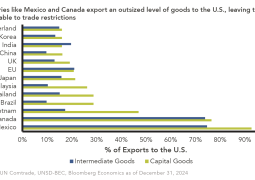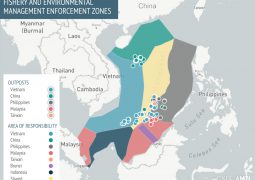Turkic states to launch joint satellite in 2026

The Organization of Turkic States (OTS) has agreed to accelerate the production of a jointly developed satellite, aiming to launch it into orbit in 2026, as part of broader efforts to deepen cooperation in space, technology, energy and sustainable development.
The decision was adopted at this week’s OTS summit in Gabala, Azerbaijan, where leaders of member countries reviewed progress across multiple sectors, from trade and transportation to energy, innovation and tourism, and outlined concrete steps to strengthen regional collaboration.

The member states agreed to intensify efforts in key strategic domains, including space and artificial intelligence, while enhancing connectivity and cultural ties across the Turkic world, Anadolu Agency (AA) reported on Friday.
Originally founded as the Cooperation Council of Turkic-Speaking Countries (the Turkic Council), the organization’s foundations were laid by the Nakhchivan Agreement signed in early October 2009, by Azerbaijan, Kazakhstan, Kyrgyzstan and Türkiye.
The OTS member countries cover a total area of 4.25 million square kilometers (over 1.6 million square miles) and a population of around 160 million. The OTS originally emerged as a summit between the heads of Turkic states in 1992, when the countries of the former Soviet Union (USSR) began declaring independence.
Joint satellite project, Turkic Space Days
One of the most notable outcomes of this week’s summit was the commitment to fast-track the joint CubeSat satellite project, a milestone achievement developed under the OTS flag through the shared expertise and technological capabilities of the member states.
The “12U TDT-SAT CubeSat” is set to become the first joint space mission of the Turkic world, marking a significant step toward deeper scientific collaboration in aerospace technologies.
The member countries also agreed to organize “Turkic Space Days” under the OTS banner, a series of events and exhibitions to be held alongside World Space Week, the International Astronautical Congress and other global space forums.

The initiative aims to boost visibility and cooperation in space sciences, promote joint scientific research and facilitate collaboration among universities, research institutions and technology firms within the Turkic region.
The OTS statement emphasized that the program will “foster an innovation-driven ecosystem” by supporting new ventures, enhancing academic and technological exchanges and encouraging collaborative research in emerging technologies.
Cooperation in AI, green transition, innovation
The summit also produced agreements to expand cooperation in artificial intelligence, green technologies and digital transformation.
Member states plan to promote innovation and capacity-building initiatives to enhance productivity, sustainability and regional competitiveness. Integration of AI, smart manufacturing systems and digital tools into national industrial strategies will be a shared objective.
“Through coordinated innovation efforts, we aim to strengthen the Turkic world’s technological resilience and competitiveness,” the joint declaration said.
Strengthening trade, transport, tourism links
The leaders also underscored the importance of enhancing trade, customs and transportation cooperation, with a focus on facilitating cross-border mobility and modernizing logistics systems.
Efforts will prioritize efficient and resilient transportation networks to boost regional connectivity and global competitiveness, particularly through upgraded infrastructure and harmonized transit procedures.
In tourism, the OTS countries will develop joint cultural tourism programs and launch coordinated promotional campaigns to increase mutual visitor flows.
Plans include the creation of a “Common Museum Card” to expand access to cultural heritage sites and reinforce a shared Turkic identity.
Energy security, green economy and climate resilience
Energy cooperation emerged as another pillar of the new agenda. The OTS members agreed to expand research on green energy, renewable resources and efficient cross-border energy transport.
Aligned with the “Turkic Green Vision,” the initiative promotes renewable energy deployment, clean technologies, energy efficiency, waste reduction and climate-resilient infrastructure.
Joint projects will also target the protection of natural resources and biodiversity, with collaboration to continue through the Drought Prevention Institute, based in Hungary.
The summit further called for exploring cooperation in critical minerals to support the energy transition and strengthen energy security across the Turkic world.
In addition, under the newly established “Civil Protection Mechanism,” member states will coordinate disaster response efforts and share resources during natural emergencies.
- Previous Malaysia announces budget spending of $144b in 2026, vows more reforms
- Next Yet Another Clown-President, Milei, Almost Ruined States: This Time the Argentina, Saved by US’s 20 bn. loan

















